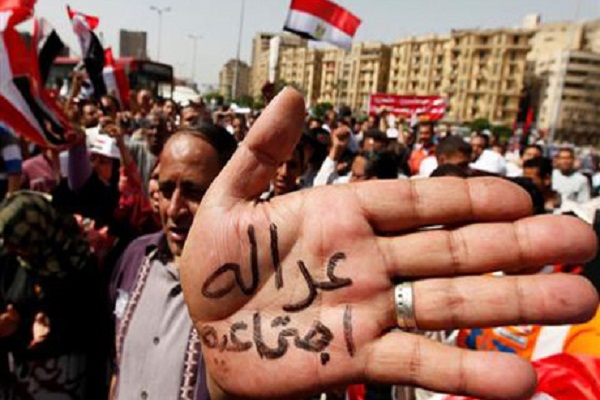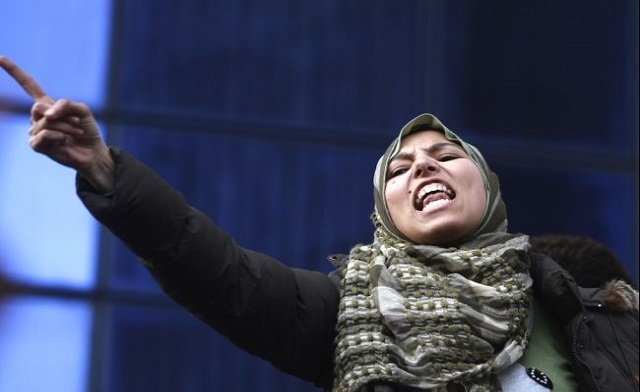
Confession, Apology, Compensation
What’s the difference between Habib El-Adly and Mustafa Bakri?
How should the revolution deal with Field Marshal Tantawi, and with Mustafa Al-Fiqi?
These, and similar questions,continue to busy the minds of Egyptian revolutionaries seeking fairness and accountability, and their search has brought them to the conclusion of transitional justice.
No country has carried out a revolution or an uprising against an authoritarian regime and not raised such questions. These issues can be summarised in the one key question: What ought to be done with the symbols and pillars of the former regime?
Ever since the ouster of the dictator, a state of turmoil and confusion has plagued Egypt; transitional justice remains the missing link,which once found, will return the revolution back to its proper path towards realising change, dignity, and social justice.
By transitional justice we mean accountability void of vengeance, justice void of blood feuds, and fairness void of bias.
It does not merely mean punishing those who have committed criminal or financial offenses, or those who took part in covering up or abetting such offenses, but rather holdingaccountable each officialin proportion to the gravity of the offense he committed.
Contrary to the claims of some, transitional justice does not mean,“God forgives what has passed!!”It is more accurately communicated by the chant taken up by millions of people the world over and which still echoes even today: “No justice, no peace.”
You cannot put all of the Mubarak regime’s symbols into the same basket; there are differences between,for instance, Habib El-Adly, who is likely guilty of murderand corruption, and Mustafa Bakri, who may have contributed to improving the public image of Mubarak and his men.
Similarly you cannot group Field Marshal Tantawi in with the symbols and ministers of the Mubarak regime. There is a sharp contrast between the field marshal, who is responsible for numerous crimes committed by members of the armed forces after Mubarak’s departure, and Mustafa Al-Fiqi who in his ambition to gain a parliamentary position and notoriety as an intellectual ignored the practices of the Mubarak regime.
Transitional justice means holding each man accountable for his crimes or actions, and establishing rules that will prevent these crimes from being repeated in future.
It means a person be placed before the rule of law and equality without any consideration given to his position or rank, or his standing with the former or current rulers.
It ensures that he who committed an offense is given lenient sentencing provided that he confesses to his crime and cooperates in investigations.
A similar case can be found in the Latin American countries which experienced a rash of kidnappings and abductions. Officers who confessed to killing victims, provided details of the crime to the justice system, and informed the victim’s family of the body’s location, were given more lenient sentencing than those who refused to confess to the crimes to which they had clearly been party.
Those who committed murder, faced harsher sentencing than those guilty of detaining persons against their will. Thus those guilty of improving the public image of Mubarak’s regime and had no other involvement in criminal activity, should receive more lenient sentencing.
The Mubarak regime and its symbols left Egypt with heavy burdens, however these pale in comparison to those Gaddaffi or Bashar Al-Assad left behind to their respective countries.
Egypt did not see widespread cases of abductions, mass murders, or purges; rather financial and political corruption and torture were the hallmark of the Mubarak regime.
Nonetheless, these actions are still crimes and those responsible are still criminals, and if punitive measures are not taken, then justice and the rule of law can never be properly implemented. Moreover, without the political will to realise transitional justice in a fair and impartial manner, there is no hope of finding stability, jettisoning the past, and moving towards a better future.
In order for transitional justice to be realised, those accused must first confess to their crimes whatever they be, and do so while providing the details of their accomplices, co-conspirators, and so on.
Secondly, the perpetrators of these crimes must apologise for their actionsand seek the forgiveness of the victims and their families.
Thirdly, the victims and their families must be compensated for the crimes and violations they endured, in such a manner that snuffs out any desire to seek revenge through other means.
There are also other steps that must be taken, such as exiling the symbols of the former regime who had no part in criminal or financial offenses, thus sparing them from the brutality and torture they themselves never inflicted.
But as was previously noted, stability and justice cannot be realised without the necessary political will, and thus we wait.



